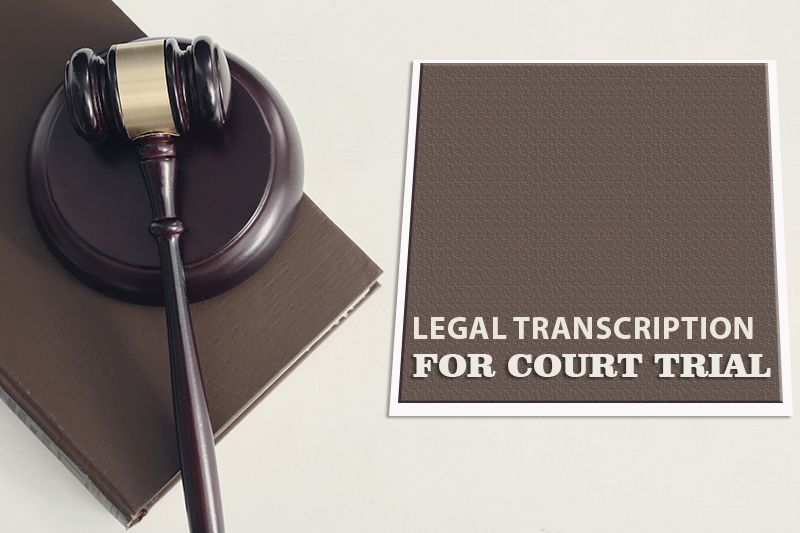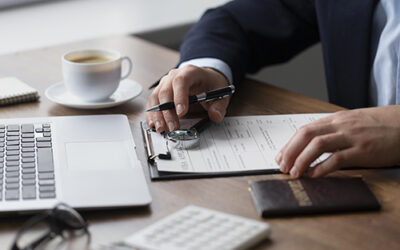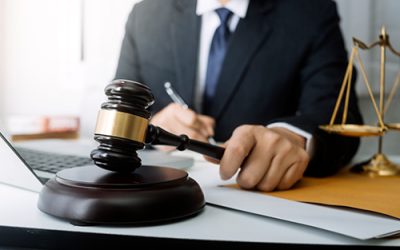Lawyers create audio and video recordings of testimonies, depositions, interrogations, court sessions, conference calls, and other legal proceedings and events. However, using audio and video recording of these conversations for court trials can be challenging. Lawyers would have to listen to the recordings over and over again to understand what was said. That’s where legal transcription comes in useful. Legal transcription companies ensure that these recordings are correctly documented so that no information is missed.
Significance of Legal Transcription for Court Trials
- Accurate records: Transcription provides lawyers with accurate documentation of audio and video recordings to prepare for civil and criminal trials. Recorded video depositions, interrogations and other events play a vital role in the legal process. Lawyers can use to develop arguments, consult with expert witnesses, and collect necessary documents for the case. However, these recordings may be difficult or impossible to understand by just listening to them. Background noise may make it difficult to hear what was said. If many people speak simultaneously, it will difficult to identity who said what. Speakers may have pronounced accents or use slang or jargon, making it a challenge to follow or understand what was said. Accurate transcripts provided by a professional legal transcription company would resolve these issues and prevent anyone from misinterpreting what was said.
- Saves time: Transcription helps lawyers and courts to save time. With accurate legal transcripts, they would not have to spend additional time reviewing the recordings of the various proceedings. They can get the information they need quickly from the documents. For instance, transcripts make it easier to comprehend what was said, including subtle nuances and word choices that were missed when listening to the recording of a deposition. Courts can use the transcripts to prepare for the trial.
- Clarity when presenting evidence: Once a transcript has been authenticated, it can serve as admissible opinion evidence as to what is said on the recording. In other words, transcripts support audio and video recordings by providing greater clarity when presenting evidence in court.
- Easily searchable and sharable: Legal professionals can easily find the information they need in transcripts. They can easily locate key statements that need clarification during the trail. This will allow them to immediately prepare questions. Likewise, sharing the file is easier and quicker than if it were in audio or video format. Text documents can be uploaded it in different file formats into various devices. When jurors and others involved in a trial or hearing are provided with a transcript on the day of the trial, it will reduce chances of misinterpretation as everyone will get the same information from the evidence. The jury can also make notes from the transcripts and highlight what they consider important.
- Key information can be highlighted: With transcripts, lawyers can highlight important aspects of the evidence or testimony. This can help them keep a track of information which is important to the case and develop their arguments.
- Create plans for appeals: If a transcript of an audio or video exhibit is made part of the district court record, it becomes part of the record on appeal. Having a verbatim transcript to support the argument on appeal can get the attention of the appellate court.
- Easy to organize and store: Digital transcripts are easy to store and organize. Well-organized digital legal records can be searched using keywords or phrases. Having all the material handy and easily accessible is important to ensure that the court proceedings run smoothly.
Legal Transcription vs. Court Proceedings Transcription
Legal transcription outsourcing can also ensure accurate documentation of court proceedings. It’s important to know the difference between legal transcription and court proceedings transcription.
Courts use digital audio or digital video to record their proceedings. Depending on current rules of practice and procedure, some proceedings may require video as well as audio. By law, each court session and every proceeding mandated by the court or by one of the judges should be recorded verbatim by shorthand, stenotype, stenomask, or electronic sound recording equipment. Court proceedings transcription is an important aspect of this process. Legal transcription companies can ensure accurate, verbatim transcripts of witness testimony, depositions, and judge or jury decisions when requested by the court or a party. Court proceedings transcription helps maintain precise, detailed records of what was said in court or throughout other legal procedures.




